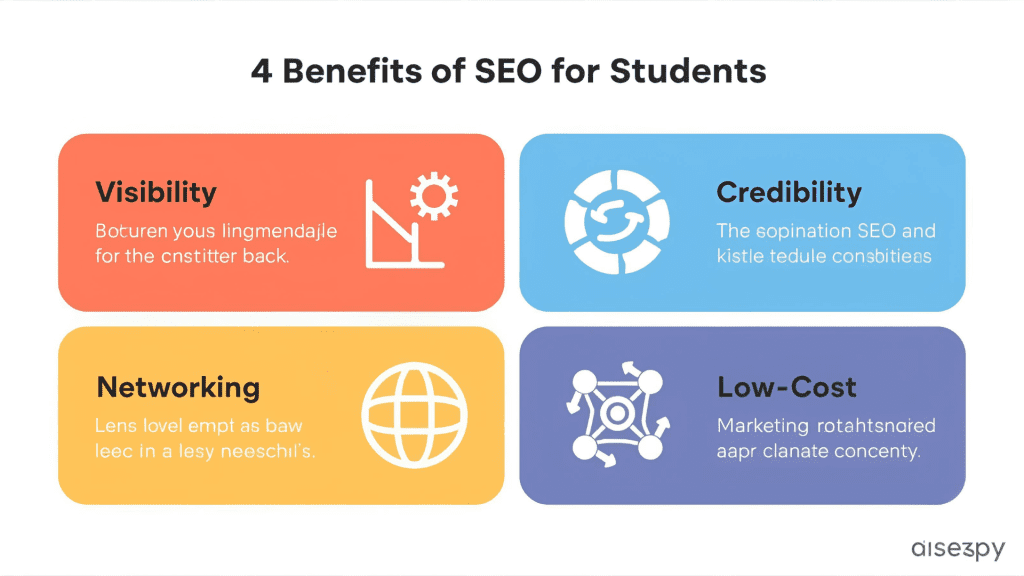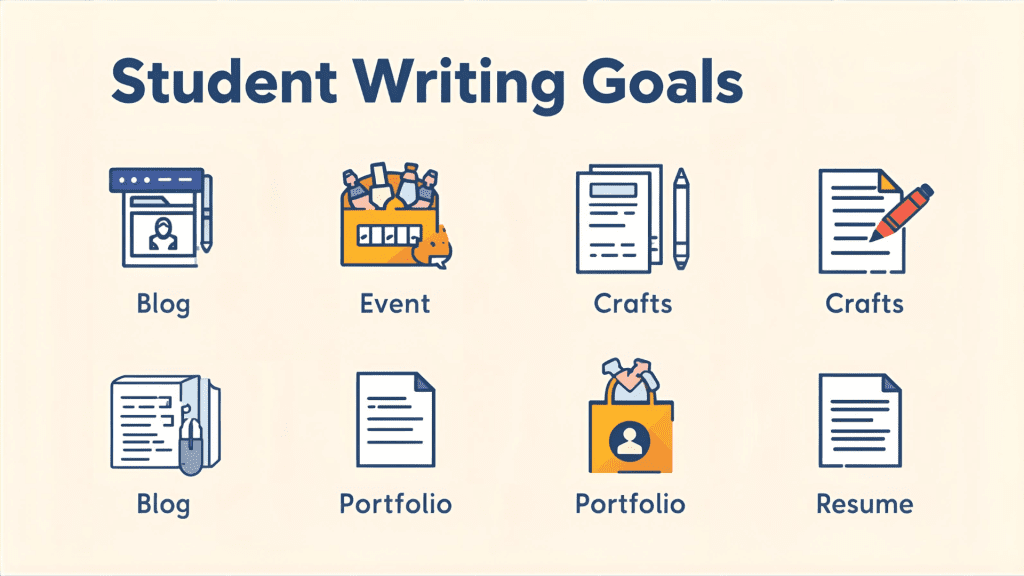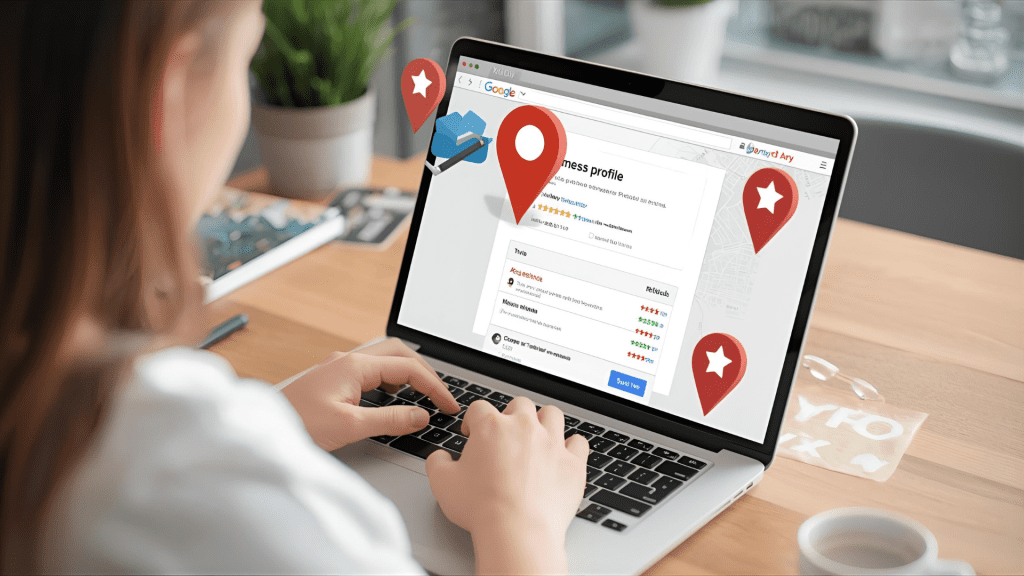In the digital age we live in, SEO (Search Engine Optimization) is not just for businesses but is an actionable skill students can leverage to build new creative projects, market their talents, and create side projects. Whether you want to start a blog, sell products online, or get people in college to join your club or event, understanding local SEO will help you shine.
If you are seriously interested in creating a solid foundation in SEO and SEO-related projects, you should pursue professional training, like the DIDM Digital Marketing Course, to learn even more advanced and new strategies to take your projects to another level.
Why Students Should Care About SEO
For students, learning SEO really isn’t about just getting paid for a search on Google. It can:
- Build online visibility for your blog or online portfolio
- Grow sales of products or services in a local audience
- Increase awareness for your club or other event on campus
- Gain an advantage for internship and job applications
With local SEO strategies, you can increase your chances of being seen in your local community and increase the chances that your target market sees your project.

Understanding the Basics of Local SEO
Local SEO is the practice of optimizing your digital presence so you can be easily discovered online by people who are geographically close to your business, service, or project. For example, you might start a photography club at your college and use local SEO to help you show up when someone in your area searches for “photographers near me” or “college photography events in [city].”
Some key components of local SEO are:
- Google Business Profile (previously known as Google My Business)
- Local Keywords
- On-Page SEO optimization
- Local Backlinks and Citations
- Reviews by Customers or Peers
Benefits of Local SEO for Student Projects
More Visibility – Potential clients or project collaborators will find you in search when they replace the word “photographer” with your phrase or skill.
Trust & Credibility – Using an optimized profile or website elevates your work and makes it more professional.
Networking – Advertising in the community draws potential collaborators, sponsors, or event participants.
Low Cost Marketing – Aside from the time and work to optimize your SEO, local SEO will cost you no money, unlike advertising.
Step 1: Determine Your Project Goals
Before jumping into SEO, think about what you want to be done with your local project. Example goals:
- Attract local readers to your site for your blog
- Gain additional registrations for your event for students
- Sell homemade crafts to the customers in your area
- Create an online portfolio for finding internships
Understanding your goals when starting a local project will give you direction on how to create an SEO strategy that assists your efforts.

Step 2: Conduct Keyword Research
Keywords are the backbone of SEO. If your project involves local goals, include your topic of focus and your city or area. Example:
- “Student photography club in Delhi,”
- “Best study tips blog in New York,”
- “Inexpensive tutoring services in Chicago.”
You can use resources such as Google Keyword Planner, SEMRush, or Ubersuggest to help determine the local terms that get the most traffic.
Step 3: Optimize Your Website or Blog
When you identify the main local project keywords you will be using, it’s time to optimize your webpage or blog for those keywords. Here are some examples of strategic consideration for your keywords:
- Title tags: Use primary local keywords (e.g., “Student Photography Club in Mumbai – Learn Photography Fast!”)
- Meta descriptions: Write localized, engaging summary descriptions,
- Headers (H1 of H2): Use your keywords in headers when appropriate and natural,
- Content: Develop blog posts, guides, and events that target local searches,
- Mobile-friendly: Ensure your website is friendly for mobile devices since most local searches are conducted on mobile devices.
Step 4: Create a Google Business Profile
If you have a physical location for your project or run an event, the next step is to create a Google Business Profile, where you can include:
- The name of your project
- Your address and phone number
- A link to your website
- Your hours of operation
- Some photos
You can also ask friends or participants to write a review! This will help you look more credible and support your SEO.

Step 5: Utilize Social Media for Local SEO
Social media sites like Instagram, Facebook, and LinkedIn improve your local ability to be discovered. A few ideas to improve your local presence include:
- Including geo-tags on your post
- Posting about events and updates, including local-ish hashtags (#DelhiEvents, #StudentLifeNYC)
- Cross-linking your social media profiles to your site or blogging
- Social engagement also indirectly sends signals to search engines to improve your SEO.
Step 6: Build Local Backlinks
One way to improve your SEO authority is by getting backlinks (links to your site from other sites). And students can do this by:
- Collaborating with your college’s blogs or local media
- Getting a listing in their local community events
- Collaborate with other students doing a project that is the same as yours and exchange guest posts on each other’s projects
- Submit your project to as many local directories as you can!
Step 7: Create Localized Content
SEO is centered around content. For their blog, students should consider publishing:
- Blog posts on local events, study hacks, narrate your experience!
- A listicle style guide that is focused on their city (“Best Cafes in London to Study”)
- Event recaps, again, with pictures and keywords
- Short videos or reels documenting your project in action
This kind of localized content will make your project more relatable and increase your chances of appearing in search.
Step 8: Monitor and Measure Progress
You can’t improve what you cannot measure. Using free tools like Google Analytics and Google Search Console, you can measure:
- Sources of website traffic
- Ranking for keywords
- User engagement (bounce rate, clicks, time spent on page)
- Local visibility
Tracking your website on a regular basis will help you improve your approach.

Common Mistakes Students Should Avoid
- Overusing keywords in an unnatural way
- Neglecting to optimize for mobile
- Not claiming their Google Business Profile
- Not updating past content
- Not giving review links enough priority
Avoiding these missteps will help to create consistency while establishing credibility through your SEO efforts.
How SEO Skills Can Lead to Career Opportunities
Students engaging in SEO on personal projects are developing skills transferable to the workplace:
- Understanding of digital marketing
- Understanding of content creation and optimization
- Experience to analyze data collected from SEO tools
- Strategic thinking and problem solving skills
- Employers, startups and freelance clients value those skills highly.

Conclusion: Get Started Today
Local SEO can help students improve their own project visibility but also helps students develop skills that might open up career opportunities in the future. Whether you manage a blog, an extracurricular college club, or a side hustle, you can apply these SEO best practices to not only improve your online brand but also offline.
Schools, and universities are continually building online programs and updating their branding resources, thus making it possible for students to work or volunteer within their local school district or college to help implement SEO strategies to improve online visibility.
Interested in learning about SEO at an academic and professional level? Check out the DIDM Course today to gain practical working knowledge that will turn your student projects into success stories.
FAQs
1. In what ways can students apply SEO to their own projects?
Students can implement SEO in their own projects by developing a blog, a portfolio, or a website, optimizing it to include local keywords, Google Business Profiles, backlinks, and content that is engaging to the user. These projects generate a local audience, build awareness, and promote skills and competencies effectively.
2. What are the advantages of local SEO to students?
Local SEO can help students with:
- Increased visibility for their projects and clubs
- Stability with a professional online presence
- Bringing in local collaborators or sponsors
- Marketing work with little or no cost
3. What tools are available to students for SEO keyword research?
Specifically designed for beginner and popular tools that can be used for keyword research:
- Google Keyword Planner
- Ubersuggest
- SEMrush
- Ahrefs
These tools can be used to identify the most applicable local search terms for a project
4. Should students have a website to utilize SEO?
Having a website or blog is by far the easiest way to integrate search engine optimization, but there is still value for students in optimizing their social media pages, setting up a Google Business Profile (if appropriate), and posting local content on appropriate social media channels.
5. How will learning SEO be helpful in students’ future career choices?
Learning SEO provides students with hands-on skills in digital marketing, optimizing content, data analyzing, and strategic thinking. These skills are applicable everywhere and are desirable when applying for jobs, internships or freelance work.
